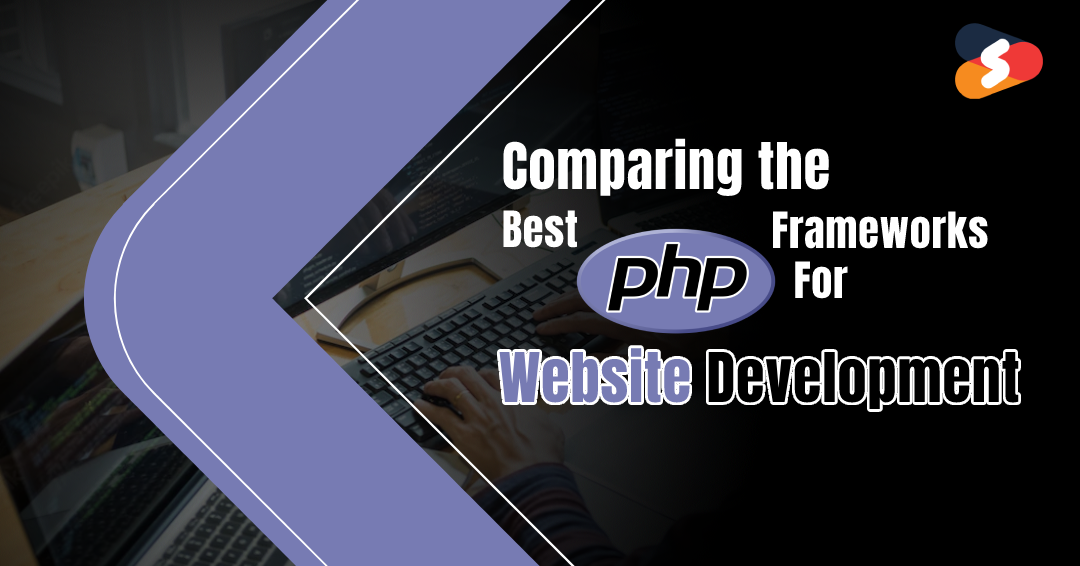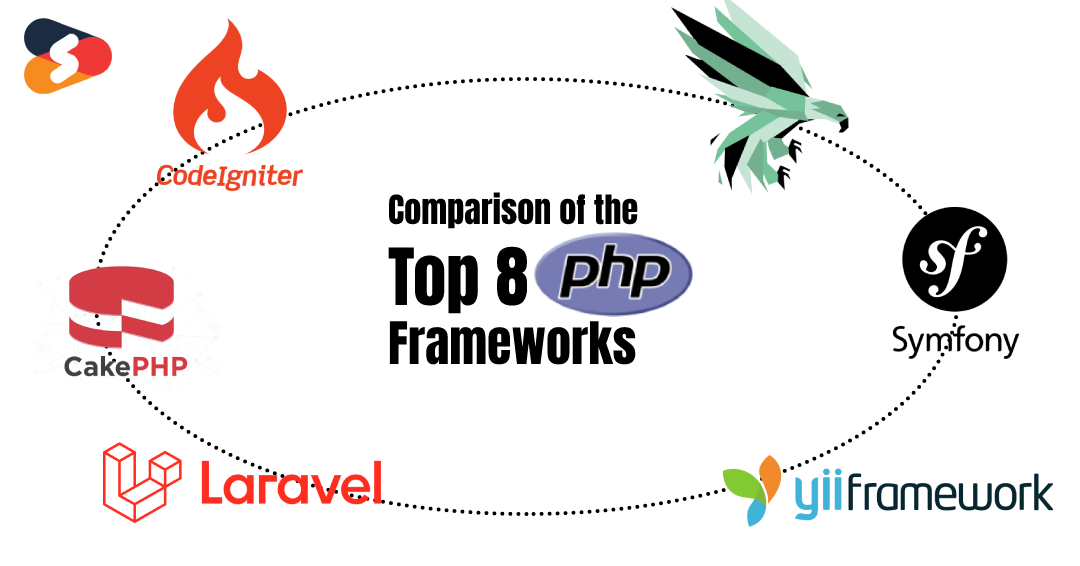

If you want to build a website in 2022, you should focus on the best PHP frameworks that will meet your goals and save you time and money.
Creating a website or mobile app from scratch takes a lot of time and effort, and you will be recreating functions that have already been established and are available for free. So why not put them to use and concentrate on developing business-related features for your digital products?
A PHP web development framework serves as a platform for creating your online application without having to reinvent the wheel. However, selecting the best PHP Development Services in Australia for web development takes some effort. To match the correct framework with your business objectives, you will need to weigh the advantages and downsides of each accessible framework.
What Are the Benefits of Using a PHP Framework for Web Development?
Choosing a sturdy tech stack should be your top consideration when designing a web application. PHP, as one of the most popular server-side scripting languages in the world, is a suitable solution for a variety of reasons, including ease of use, flexibility, scalability, and more. Because of the benefits it provides, PHP Development Services in Australia is used to construct more than 80% of online applications.


What Are the Benefits of Using a PHP Framework for Web Development?
Choosing a sturdy tech stack should be your top consideration when designing a web application. PHP, as one of the most popular server-side scripting languages in the world, is a suitable solution for a variety of reasons, including ease of use, flexibility, scalability, and more. Because of the benefits it provides, PHP Development Services in Australia is used to construct more than 80% of online applications.
Comparison of the Top 8 PHP Frameworks: Pros and Cons
We created a table to compare the performance of PHP frameworks such as Laravel, Yii, Phalcon, Slim, and Symfony. Examining the advantages and disadvantages of each can assist you in selecting the ideal framework for your next web application development project.
Laravel
Laravel is an open-source, MVC-based PHP web framework that is simple to use, intuitive, and scalable. Laravel is a favorite choice for building advanced, multifunctional, B2B, or enterprise-level web apps due to its ability to handle complexity with speed and unparalleled security.
Pros
- Laravel is well-suited to large and complicated websites.
- system for lightweight tessellation.
- Artisan, the built-in tool, can assist in the management of repetitive chores.
- Database systems are more productive.
- Integration with mail services has been simplified.
- SQL queries are accepted.
Cons
- Not applicable to updates.
- Too many configurations are required.
- There aren’t many built-in functions or tools.
- At times, there are performance concerns.
Yii
Yii is an open-source, component-based PHP framework for building large-scale web applications. It includes various highly flexible tools for quickly creating code, such as form inputs and CRUD.
Pros
- Provides CRUD objects.
- Suitable for eCommerce websites, content management systems, and online forums
- Provides a set of highly intuitive and extendable utilities.
- Gii is an object-oriented class code generator that is efficient.
Cons
- The Ajax features are underdeveloped and need to be improved.
- It is dependent on static methods.
- Many PHP and web development fundamentals are required.
CodeIgniter
CodeIgniter is an MVC-based, quick, dependable, and widely used PHP framework for rapidly constructing dynamic web projects. It is known for its small size (only 2 MB, including the documentation). The framework has several built-in modules that allow you to design robust and reusable components to make the entire development process smooth and fast.
Pros
- Contains bundles that enable repeated usage scenarios.
- It provides more support and stability.
- It is easy to use.
- Sites for e-commerce and payment
Cons
- There are no coding restrictions.
- There is no CRUD object creation support.
Symfony
The primary advantage of the Symfony framework is that it provides bundles and components for more flexibility and developer efficiency. While bundles and plugins are nearly identical, components are generic features that can be utilized to decrease a developer’s usual labor when developing web apps. It frees up developers’ time to work on business-specific features and functionality.
Pros
- Simple to maintain.
- High-productivity techniques are employed.
- PHPUnit is used for unit testing.
- Data migration is completely automated.
Cons
- The learning curve is strong.
- Inexperienced PHP developers should avoid this.
Phalcon
Phalcon is a full-stack PHP framework for website development that was released in 2012. Despite the fact that the framework is a C extension, you don’t need to know C to build PHP web apps using Phalcon.
It is the first PHP framework to implement ORM in C, based on the MVC architecture. It uses fewer resources and fewer code lines to accomplish a certain task. As a result, it is the ideal solution for building lightning-fast and high-performance websites.
Pros
- Phalcon is easy to set up and run in the system.
- It is supported by several operating systems, including Unix, Windows, Linux, and macOS.
- Based on the C extension.
- PHP development that is quick and efficient
- Dependency injection is supported.
- Zephir allows you to customize the components.
- Volt is a template framework for creating reusable templates.
Cons
- It has a compiled extension, which makes installation difficult.
- The learning curve is really steep.
- Because it is not widely known, there is little community support.
- Scalability challenges
Slim
Slim should be your first pick if you want to create a simple yet effective web application. It is a PHP micro-framework with less functionality than other popular PHP frameworks, but it allows you to build powerful APIs and online applications.
Pros
- It is a PHP microframework for developing RESTful APIs.
- Slim has an effective routing mechanism.
- Pattern matching and HTML requests
- It can be used to create APIs.
- Prototypes are created quickly.
- Several classes are available for managing cookies, HTTP requests, and other things.
Cons
- Inconsistency between versions.
- However, it is insufficient to support dependency injection.
CakePHP
CakePHP is an open-source PHP framework that uses the MVC concept to accelerate web project development. It allows developers to keep the app interface distinct from the business logic, allowing them to work on different aspects of the program at the same time.
Pros
- CakePHP is a free and open-source full-stack framework.
- Modules make up this system.
- The “convention over configuration” method is used.
- A robust ORM solution for database mapping.
- Code scaffolding and automated code production allow for quick prototyping.
Cons
- Is incompatible with recent PHP versions.
- Dated URL routing necessitates the updating of default routes for fancy URLs.
Zend
Zend is a feature-rich enterprise-level PHP framework that is open-source and simple to use. It employs notions such as interfaces and inheritance because it is an object-oriented framework. The majority of its components are flexible and expandable, allowing web developers to create variations without modifying the basic code base.
Pros
- Framework that is highly customizable.
- Third-party libraries and modules can be used.
- has big data management applications.
- The MVC architecture model is used.
- Tasks must have as little code as possible.
- External plugins are used to implement out-of-the-box capabilities.
Cons
- Zend plugins are not inexpensive.
- It is challenging for beginners.
- A decent website requires a thorough understanding of all of its components.
Which Framework Is Right for You?
Using a framework is a good idea. If you want to spend less time developing PHP web apps, go to the Best PHP Development Company in Australia. To get the most out of a PHP framework and minimize frustration, make sure you have a good understanding of PHP and the fundamental ideas that frameworks are built on: MVC architecture, object-oriented syntax, databases and ORMs, and command line are all examples.
